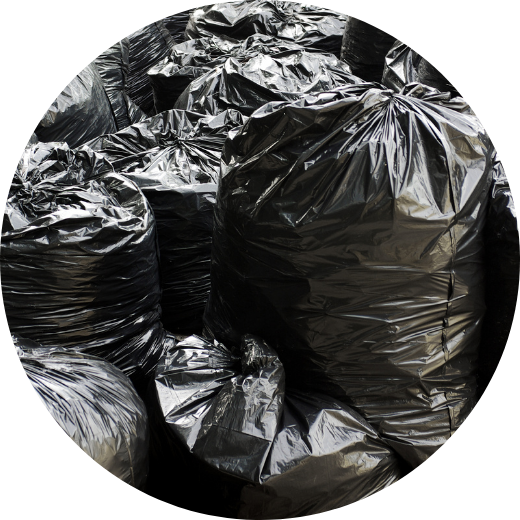Our Projects
Overview
Tackling our waste crisis is about more than managing trash efficiently – it’s about acknowledging and changing the broken systems that lead to overproduction, overconsumption, and environmental injustice.
Every piece of waste tells a story: Of resources extracted and discarded, of products designed to be used once and tossed, of corporations choosing convenience over sustainability, and of communities forced to live with the consequences. At Just Zero, we know that fixing this crisis means addressing all of it – together.
That starts with reducing the preventable waste that never should have existed – single-use plastics, excessive packaging, and quality food that ends up in landfills instead of feeding people. But cutting waste isn’t enough. We must also hold powerful industries accountable for their corporate pollution. Profit-seeking companies play an outsized role in perpetuating our polluting, throwaway economy. It’s time we require them to design products and packaging for reuse, repair, composting, or real recycling.
At the same time, we need to build out zero waste systems that actually work – programs and practices that keep materials in circulation while supporting a just, thriving, green economy. This means investing in clean compost systems, developing strong reuse networks, passing more bottle bills, and developing the infrastructure that prioritizes people and the planet over waste.
We also need to prioritize healthy environments over harmful and damaging waste practices once and for all. Burning and burying waste in incinerators and landfills pollutes our air and water, accelerates climate change, and disproportionately harms the health of frontline communities. And spreading sewage sludge on our fields has turned farmland into a dumping ground for toxic pollution. These practices are relics of an outdated misconception that waste has to go “somewhere.” But they have no place in a Zero Waste future.
At Just Zero, we believe that all people deserve access to waste solutions that are just, effective, and rooted in health and equity. That’s why our work spans the full scope of the waste crisis — and why we’ve organized it into four connected projects that, together, build the foundation for a future without waste.
Together, our projects tackle the full scope of our waste crisis.
Preventable Waste
Eliminating trash that shouldn’t exist.

Most of the waste piling up in our landfills, incinerators, and streets could have been avoided. We work alongside communities, advocates, and lawmakers to phase out unnecessary and harmful waste streams – from single-use plastics and excessive packaging to avoidable food waste. Through smart policies and strong public support, we can stop trash before it starts.
Corporate Pollution
Holding big polluters accountable.

The burden of our waste crisis should fall on the companies that profit from it – not on the people living with its consequences. We partner with environmental groups and organizations to design and advocate for policies that hold corporations responsible for reducing waste, eliminating toxic chemicals in consumer goods, and designing sustainable systems. We also call out corporate greenwashing.
Zero Waste Systems
Building real solutions that work.

Zero Waste isn’t a slogan, and it isn’t a lifestyle choice – it’s a set of proven policies and strategies that stop waste before it starts. We champion local and state efforts to build effective waste reduction systems, including composting infrastructure, reuse networks, and deposit-return programs. These systems are practical, scalable, and essential to a climate-safe, non-toxic, sustainable economy.
Healthy Environments
Working alongside communities.

Trash doesn’t disappear. It’s buried in landfills, burned in incinerators, or dumped in communities already overburdened by pollution. We partner with local residents and grassroots leaders to stop the expansion of harmful disposal facilities and polluting waste practices, and we push for healthier, safer alternatives. Because no one should have to live in the shadow of a landfill or incinerator.